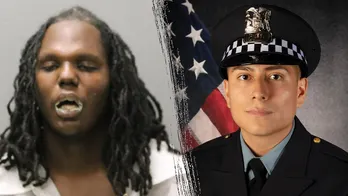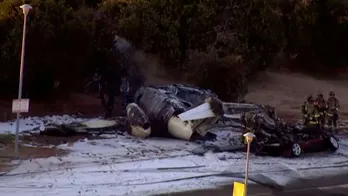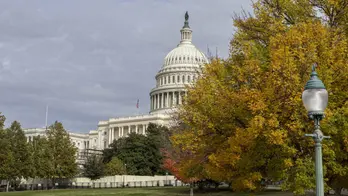One sister survived cancer. Five years later, the other one is still processing it
Kayla Crum is two years older than her sister Ella Beckett. But growing up, she says she sometimes felt like Ella was ahead of her.
"I remember she taught me how to French braid and I was feeling like that should have been my job as the older sister," Kayla told NPR's Morning Edition. "I actually grew up with quite a bit of jealousy for my sister. She was naturally gifted at school, at ballet, athletics, and I was like, decently good at those things."
Kayla's feelings of childhood jealousy only got more complicated after Ella turned 18 and was diagnosed with Hodgkin's lymphoma.
"When you're diagnosed with cancer, you know that it's about to blow up all the people who love you's world too, and you feel so responsible," Ella said. "I really struggled with feeling super guilty because I knew I was the reason that Kayla and my parents were, like, having this really difficult time."
Kayla says she thought her sister's cancer would bring them closer, but instead her sister seemed withdrawn, even grumpy.
"I had all these visions of us having these deep talks and like supporting each other through it," Kayla said. "But I just feel like I had to put in hours of just presence to get maybe, you know, a 15-minute conversation that was healing for us."
Kayla says she also struggled to find people to support her own needs.
More than 85,000 adolescents and young adults are diagnosed with cancer in the U.S. each year. There are support groups for people living through cancer and for parents — but there aren't always the same resources for siblings.
"So cancer is obviously an earth-shattering diagnosis," Kayla said. "I will always think it's been hardest on Ella. And yet, it's probably been the hardest thing I've ever experienced in my own life as well."
Kayla says she also felt guilty complaining about little things.
"How dare I even let myself wallow or feel sad about a knee injury that has put me on the couch for a while, or a setback at work," Kayla said. "It got to the point where I just felt, in college, like, do I need to have a public, like crying breakdown to get some support?"
Kristin Long is an associate professor at Boston University. She calls siblings of kids with cancer "shadow survivors" because they often get the trauma but not the support.
"Siblings are in the midst of this huge family stressor," Long said. "They have the urge to protect the people around them, especially their parents or other family members. And so they tend to keep this all inside. They try to reduce family stress by doing everything as perfectly as they can."
Long's research also found that siblings of kids with cancer are at a higher risk of post-traumatic stress — even more than their sibling who's fighting the disease.
They may have nightmares, avoid things that remind them of cancer or constantly be on high-alert.
"Almost three quarters of siblings report that these symptoms interfere with their functioning in some way," Long said.
If a sibling is struggling, Long says don't blame family members. Instead, blame the system that fails to recognize the need for additional support for the siblings of cancer patients.
"For example, there's not very much staff availability. Siblings are often not in the health care center. And when they are there, it's often on evenings or weekends when staff aren't there."
And when these services exist – they can be cut by hospitals if they aren't fully utilized by siblings.
Ella has been cancer-free for five years. Kayla says she's still working through the emotional residue.
"I don't know if jealous is the word anymore, but my parents and other people in our life treat Ella now with such tenderness," Kayla said. "It's not something that I think about every day or that I actively resent, but it's definitely something that happened and it changed how everyone acts toward her forever."
Earlier this year, Kayla and Ella started a podcast called My Sister's Cancer. In November, Kristin Long at Boston University will host a convention about how to support siblings like them in Chicago.
This story was edited for radio by Jan Johnson and edited for digital by Treye Green.
Disclaimer: The copyright of this article belongs to the original author. Reposting this article is solely for the purpose of information dissemination and does not constitute any investment advice. If there is any infringement, please contact us immediately. We will make corrections or deletions as necessary. Thank you.







